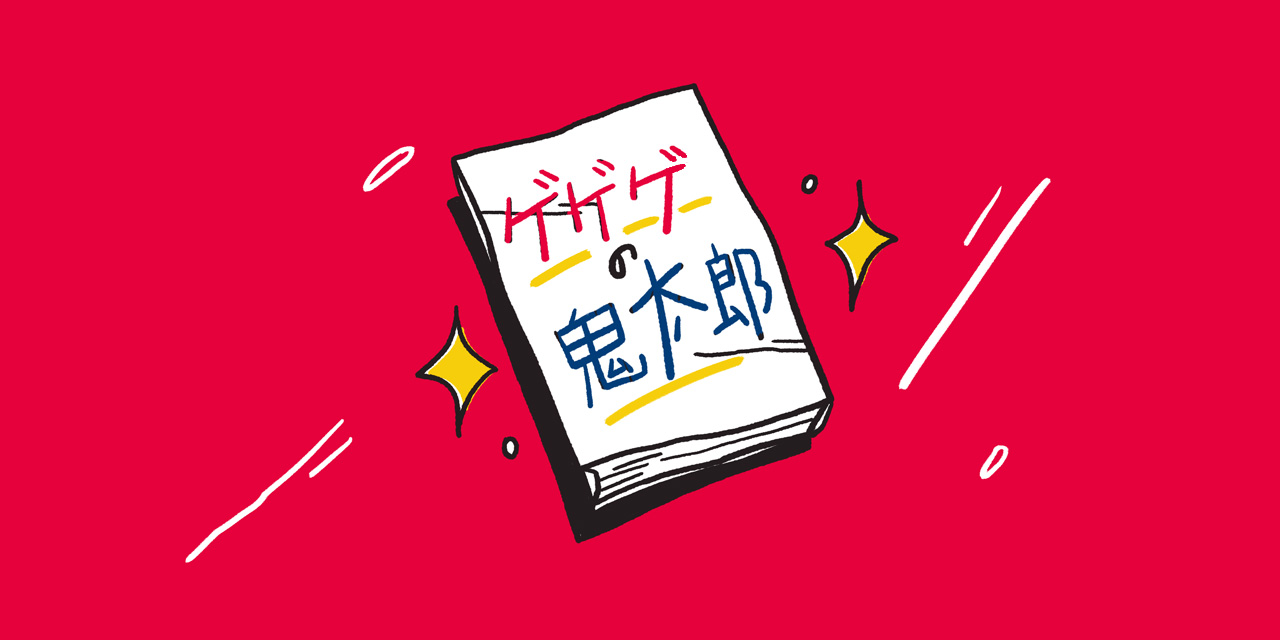Zack Davisson is a manga translator whose translations have won multiple Eisner awards. We asked him to share his advice and tips for learning Japanese. We hope his thoughts will help you on your own lifelong learning journey.
One of the questions I'm most often asked is, "How long did it take you to learn Japanese?" The answer is always the same: I never stopped learning.
It's been a continuous process, from my first Japanese class in junior high (1985, to be precise) until today. Even as a professional manga translator with thousands of translated pages under my belt, I'm not "done." I learn new things, I forget old things, see a kanji that looks familiar and realize I studied it for a test years ago.
It's a lifelong process. If you want to start learning Japanese, expect to do it forever.
It's a lifelong process. If you want to start learning Japanese, expect to do it forever. You need to be in it for the long haul. That's lesson number one.
And the rest? Well…
I'm going to be up front with you, not all the advice I have on learning Japanese is practical. And that's fine. Not everyone needs to go to the lengths I did to learn Japanese. After all, I translate for a living and that's not a goal everyone has. But if you're looking to study Japanese at a higher intensity, here's what I did:
1. I Moved to Japan

Boom! There it is. The big one. And the most important one for me.
Though I may have started "studying" Japanese in junior high, I didn't learn much. Aside from a few memorized greetings and phrases, my Japanese was practically non-existent. When I got to high school, they didn't offer the language, so I took a four-year break before starting again in college. I learned more this time, but again it was more memorization than internalization. I kept taking community college night classes after graduation, but it never really stuck.
Part of the reason for my struggle is I'm an instinctual learner – I don't do well with systems, lists, or tools. I have to internalize something and experience it in order to master it. And this is especially true of language. Japanese was something I needed to be inside of. I had to live the language, not learn it. That's why I moved to Japan.
Even though moving to Japan seems impossible, please know it's very possible. And the earlier you start, the better. I wish I had been brave enough to go as a high school exchange student. Instead, I waited until I was 30 years old and learned about the JET Program. That was my ticket to the Land of the Rising Sun and to fluency (it can be yours, too).
That said, I've met people with surprising levels of Japanese fluency who have never been to Japan. I just knew I could never be one of those people.
2. I Hung out in Bars

Once I made it to Japan, I learned two important lessons:
-
I knew even less Japanese than I thought I did. Even with several years of formal Japanese study at a college level, the phrases and words I had memorized left me barely functional. Normal people don't speak in grammatically correct sentences with proper structure. They don't restrict themselves to predetermined vocabulary. They have unique speech patterns and use slang. I couldn't understand a thing, and no one could understand me.
-
No one wanted to speak Japanese to me. As a freshly arrived foreigner, most people were more interested in practicing their English than teaching me Japanese. My abilities were so limited it made actual conversation impossible, and most people had better things to do than wait for me to muddle through my limited vocabulary.
The solution: bars. I quickly discovered that when you are out drinking in Japan, people loosen up. Keep going to the same place over and over again, and eventually you are part of the crowd. People start talking to you. They make an effort to communicate. And if you have nothing to say, you can just sit and listen. Even if you are only practicing a few phrases, sticking in some words here and there, you'll find comprehension slowly dawning.
I honestly think I learned more in my local bar than I did in all of my classes combined.
If I'm making all this sound simpler than it is, don't worry – It's not easy. Obviously, hanging out in bars isn't magic. You can't go sit on a bar stool with zero language skills and expect to walk out with JLPT N1 certification. The whole time I was in Japan, I continued my formal studies, got a Certificate in Advanced Japanese, and eventually earned my Master's Degree in Japanese, as well. All that book learning gave me the foundation I needed to take advantage of the surrounding bar chat. It's the closest thing I have to a "shortcut," and it worked for me.
I honestly think I learned more in my local bar than I did in all of my classes combined. Speaking Japanese in bars keeps you on your toes, jumping mid-way into conversations, and shifting gears rapidly. You gain the ability to pick out meaning when you only understand five of the seven words spoken. You could say that while my classes taught me how to speak Japanese, bars taught me how to think in Japanese.
Plus, it was a lot of fun.
3. I Labeled My House

Okay, this is easy to pull off, no matter where you live. I stuck labels all over everything in my house, written in Japanese (of course). It turned my living environment into a study lab. I couldn't go anywhere without seeing Japanese directly associated with the objects I was looking at. I had to reach into the 冷蔵庫 to grab a ビール. If I wanted to sit on my ソファ to watch テレビ, there were labels there, too.
It made my house look somewhat ludicrous and I had to explain myself when people came over, but looking ridiculous was the least of my worries. I was dedicated.
4. I Found Something I Love (That's Only in Japanese)

When I got to Japan, the comics of artist Mizuki Shigeru and Japan's bizarre world of yokai were everywhere. And they all looked so cool! But Mizuki's work had never been translated into English, and neither had any of the amazing yokai books I found all around me. I couldn't understand a word. It was a wonderful world locked in a cabinet, and the key to opening it was language.
I bought tons of books and comics that I couldn't actually read, and went over them painfully, one kanji at a time. The advantage of picking a single topic and sticking to it is you'll run into the same vocabulary over and over again. This means you get the required repetition, and learn it in context instead of with disconnected flashcards.
And remember: for this to work, you have to find something that is only in Japanese. That way there's no cheating!
5. I Made (Real) Japanese Friends

The key to this step is actual friends, not people you can "practice on." When I lived in Japan, I ran into my fair share of potential Japanese friends who saw me as a language lesson. I gave these folks the charming nickname "language leeches." You're not really a person to them, you're a living practice dummy.
Don't make Japanese "friends" to exploit for your language learning benefit. No one likes to be treated that way.
What I'm talking about is real friends – people you can hang out with, go to dinner with, chat about TV shows with. That's priceless, not only in life, but also in language acquisition.
Real friends are priceless, not only in life, but also in language acquisition.
At this point you might be saying, "That's great advice, but how do I make actual Japanese friends?" For me, it was the end result of practicing steps one through four over and over. It took a long time. I was probably in Japan for three years before I made my first true friend, someone that I would have been friends with anyway, language barrier aside. This is someone I could hang out with, talk to, and feel perfectly natural around while speaking Japanese. And then I made more friends, and more friends, and I am still friends with those people today. Hell, we all have matching tattoos. It's a thing.
People Are the Key
I talked earlier in Step 1 about "living the language," and to me that's all about people. Japanese is not books and movies and toys and food. It's people. Real, regular human beings who you can talk to, and who you can't talk to if you don't speak their language.
The people I met are my real reason for learning Japanese. They're the reason I keep learning and studying (well, that and I currently get paid for it, but that's a bonus rather than a goal).
And if you follow steps one through five, you might even gain something more remarkable. Like me, you might find yourself married to someone you couldn't have had a cup of coffee with a handful of years earlier. And that's amazing. I get to have this really awesome person in my life who I share everything with, and most of the time, it just happens to be in Japanese. That matters much more to me than being a professional translator.
